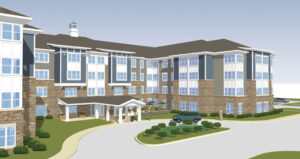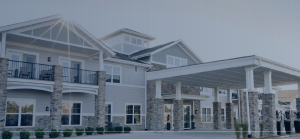Georgia, a state known for its rich history, southern charm, and scenic beauty, is undergoing significant demographic changes. The Peach State, like the rest of the U.S., is witnessing a rise in its aging population. With the ‘Baby Boomer’ generation transitioning into their golden years, there’s a growing focus on the senior housing market in Georgia. This post delves into the current state of senior housing in Georgia and how it aligns with the needs of the population aged 65 and above.
1. The Rising Senior Population in Georgia According to the U.S. Census Bureau, the percentage of Georgians aged 65 and above has been steadily increasing. By 2021, approximately 14% of the state’s total population was over 65. This number is expected to grow as advancements in healthcare and overall quality of life lead to increased longevity. This demographic shift creates a pressing need for suitable housing that caters to the unique requirements of seniors.
2. Senior Housing Options in Georgia Georgia offers a wide range of senior housing options:
- Independent Living Communities: These are designed for seniors who can live independently but desire the community and amenities that these establishments offer. They might feature events, communal meals, and recreational activities.
- Assisted Living Facilities: These are for seniors who need assistance with daily activities but do not require intensive medical care. They offer a balance between independence and support.
- Nursing Homes: For seniors who need regular medical attention and assistance with daily activities, nursing homes offer 24/7 care.
- Memory Care Facilities: Specifically designed for seniors with Alzheimer’s or other dementias, these facilities provide specialized care and secure environments.
3. The Affordability Factor Housing affordability remains a concern. Georgia, though generally more affordable than states like California or New York, still has areas where senior housing costs can be burdensome, especially in metropolitan areas like Atlanta. It’s crucial for policymakers and developers to consider affordability when planning and building senior housing facilities.
4. The Role of Technology in Senior Housing With advancements in technology, many senior homes in Georgia are integrating smart devices and systems to enhance safety and improve the quality of life. Features like fall detection, medication reminders, and virtual doctor visits are becoming standard in many establishments.
5. Challenges Ahead While Georgia has made significant strides in offering varied housing options for its senior population, there are challenges ahead:
- Capacity: With the rising number of seniors, there’s a need to expand the capacity of senior housing.
- Quality of Care: Ensuring that all facilities maintain a high standard of care, irrespective of the price point.
- Accessibility: Making sure that housing options are easily accessible to seniors, regardless of their physical capabilities.
6. Final Thoughts The senior housing market in Georgia is poised for growth, given the demographic trends. With the combination of a pleasant climate, rich culture, and increasing housing options, Georgia remains an attractive destination for many seniors. However, to ensure that the Peach State remains at the forefront of senior care, continuous efforts are needed in policy-making, infrastructure development, and community engagement.
The senior housing sector offers an opportunity for Georgia to shine – as a state that truly values and caters to its elders, ensuring they enjoy their golden years with dignity, comfort, and joy.






